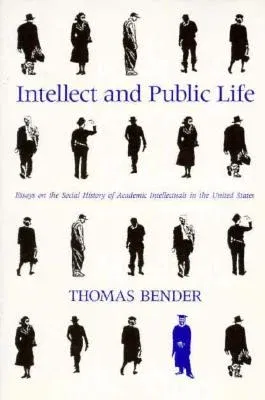Thomas Bender
(Author)Intellect and Public Life: Essays on the Social History of Academic Intellectuals in the United States (Revised)Paperback - Revised, 1 October 1997

Qty
1
Turbo
Ships in 2 - 3 days
In Stock
Free Delivery
Cash on Delivery
15 Days
Free Returns
Secure Checkout

Print Length
200 pages
Language
English
Publisher
Johns Hopkins University Press
Date Published
1 Oct 1997
ISBN-10
0801857848
ISBN-13
9780801857843
Description
Product Details
Author:
Book Edition:
Revised
Book Format:
Paperback
Country of Origin:
US
Date Published:
1 October 1997
Dimensions:
22.91 x
15.27 x
1.22 cm
Genre:
20th Century
ISBN-10:
0801857848
ISBN-13:
9780801857843
Language:
English
Location:
Baltimore
Pages:
200
Publisher:
Weight:
258.55 gm